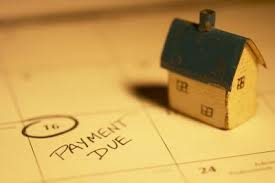Have you noticed a sudden increase in your mortgage payment? You’re not alone.
Many homeowners experience this, and it can be frustrating trying to understand why. Unraveling the mystery behind the surge in your monthly bill is crucial. It helps you make informed decisions about your finances and ensures you’re not caught off guard in the future.
Imagine the relief of knowing exactly why your payment has increased and what you can do about it. This article will guide you through the common reasons behind the hike, empowering you with knowledge that can transform your financial outlook. Understanding the details can help you regain control and feel more secure about your home investment. Stick with us as we delve into the factors that could be affecting your mortgage payment, and discover practical tips that can help you manage and even reduce your costs. Your peace of mind is just a few paragraphs away.
Common Reasons For Mortgage Payment Increases
Many homeowners face unexpected changes in their mortgage payments. It can be confusing. Payment increases happen for various reasons. Understanding these factors helps manage finances better.
Interest Rate Adjustments
Interest rates can change over time. Adjustable-rate mortgages (ARMs) have fluctuating interest rates. As rates rise, monthly payments increase. This impacts budgets directly. Fixed-rate mortgages remain stable but may adjust at renewal.
Property Tax Changes
Local governments reassess property values regularly. Increased assessments lead to higher property taxes. These changes affect escrow accounts. The lender adjusts the monthly payment accordingly. Knowing your local tax policy is vital.
Homeowners Insurance Fluctuations
Insurance premiums can vary annually. Coverage adjustments or increased risks affect costs. Lenders include insurance in monthly payments. Changes in premiums lead to payment adjustments. Review your policy details regularly.
Impact Of Adjustable-rate Mortgages
Adjustable-rate mortgages (ARMs) can be a double-edged sword. They often start with lower interest rates, saving you money initially. But over time, these rates can change, and that’s when your mortgage payment might suddenly increase. Understanding how ARMs work is crucial to managing your finances effectively and avoiding surprises.
Rate Reset Periods
ARMs come with specific rate reset periods, typically every one, three, five, or seven years. During these times, your interest rate—and consequently your payment—can change based on current market conditions. Picture yourself enjoying a low payment for five years, only to face a hike at the reset period. Have you prepared for this possibility?
Knowing your reset period helps you plan. If you’re approaching a reset, check your mortgage documents or consult your lender. This proactive approach ensures you aren’t caught off guard by a sudden spike.
Market Conditions Effects
Market conditions play a significant role in determining your new interest rate. When the economy is strong, interest rates can rise, leading to higher mortgage payments. Conversely, if the economy weakens, rates might decrease, lowering your costs.
Consider how global events could affect rates. A booming economy might mean higher payments. Are you ready for that change? Keeping an eye on economic trends helps you anticipate possible adjustments.
Ultimately, understanding the impact of ARMs on your mortgage payment is about foresight and preparation. By knowing your reset periods and staying informed about market conditions, you can better manage your financial future. What steps will you take today to ensure you’re ready for your next rate change?
Escrow Adjustments And Their Influence
Unexpected changes in escrow can cause your mortgage payment to rise. Taxes or insurance rates might have increased. This adjustment ensures your escrow account has enough to cover these costs.
Escrow adjustments can be a puzzling factor behind the sudden increase in your mortgage payment. If you’ve noticed a jump in your monthly bill, it’s likely tied to changes in your escrow account. Understanding how this works can help you manage your budget and avoid surprises in the future. Let’s explore how escrow adjustments influence your mortgage payment.Understanding Escrow Accounts
Escrow accounts are like savings accounts managed by your lender. They collect funds to pay property taxes, homeowner’s insurance, and sometimes other fees. This setup ensures these bills are paid on time, but it can also affect your mortgage payment if there are changes. Imagine your property taxes go up. Your lender needs to adjust the amount collected in escrow, increasing your monthly mortgage payment. It’s crucial to understand this connection so you can anticipate changes.Changes In Escrow Calculations
Escrow calculations are based on estimates of your property taxes and insurance premiums. These estimates can fluctuate, leading to adjustments in your payment. Have you ever noticed a significant change in your insurance premium? That change would directly impact the funds required in your escrow account. Sometimes, your lender might have miscalculated the previous year’s escrow needs, leading to a shortage. This shortage requires an increase in your current mortgage payment to cover the deficit. Consider this: How often do you review your property’s tax assessments? Staying informed about these assessments can help you anticipate changes in your escrow account. An unexpected increase in your mortgage payment can be unsettling, but understanding the mechanics behind escrow adjustments empowers you to take control. With this knowledge, you can actively monitor changes and plan accordingly, ensuring a smoother financial journey.
Credit: www.bankrate.com
Loan Modifications And Refinancing
Mortgage payments can increase due to loan modifications or refinancing changes. Interest rates might rise, affecting monthly costs. Adjustments in insurance or property taxes can also contribute to higher payments.
Have you ever received your mortgage statement and noticed an unexpected increase in your payment? You’re not alone. Many homeowners experience this, often due to factors like loan modifications and refinancing. Understanding these can help you manage your finances better and avoid surprises in the future.Potential Changes From Refinancing
Refinancing can be a smart move. You might refinance to get a lower interest rate, change the loan term, or switch from an adjustable-rate mortgage to a fixed-rate one. But, refinancing can lead to higher monthly payments. If you choose a shorter loan term, your monthly payment will increase even if the interest rate is lower. Think of it as trading higher payments for paying off your home faster. Refinancing costs can also add to your mortgage balance. Fees for appraisals, title insurance, and closing costs can be rolled into the loan, increasing your monthly payment. Have you considered how these upfront costs might impact your overall payment?Effects Of Loan Modifications
Loan modifications are designed to help struggling homeowners. They can lower your interest rate, extend your loan term, or even reduce your principal balance. However, modifications can sometimes raise your mortgage payment. If the modification includes previously missed payments or fees, these can be added to your loan balance, increasing your payment. Consider your financial situation carefully when looking at loan modifications. They can be a lifeline, but make sure you’re aware of how they might change your payments. Understanding these changes can help you make informed decisions about your mortgage. What adjustments have you experienced with your mortgage, and how did you handle them?Impact Of Local Property Tax Assessments
Local property tax assessments can increase your mortgage payment. Higher assessed property values lead to higher taxes. Mortgage payments often include these taxes, causing your monthly amount to rise. Understanding your property tax assessment helps manage these changes effectively.
Have you ever opened your mortgage statement only to find your payment has increased unexpectedly? One common reason for this is a change in local property tax assessments. These assessments can impact your mortgage payment significantly, and understanding how they work can help you plan better financially.Assessment Process Overview
Local governments periodically assess the value of properties to determine property taxes. This assessment process is crucial because it dictates how much you owe in property taxes each year. If your property’s assessed value increases, your taxes—and consequently, your mortgage payment—may rise as well. Assessors use various factors to determine your property’s value, such as recent sales of similar homes in your area. They may also consider any improvements you’ve made to your property. Have you added a new deck or remodeled the kitchen? These upgrades could increase your home’s assessed value.Community Changes And Tax Rates
Community development can also affect your property taxes. New schools, parks, or infrastructure projects can lead to higher tax rates. These improvements often require more funds, which local governments may collect through increased property taxes. If your neighborhood is experiencing a boom in development, you might see a corresponding rise in your tax bill. Are new businesses moving into your area? While this can boost local amenities, it can also mean higher taxes. Additionally, local government decisions can directly impact tax rates. If your city or county votes to increase the tax rate to fund new projects, your property taxes will go up. Are you aware of what’s happening in your local government? Staying informed can help you anticipate changes in your mortgage payment. Understanding these factors can prepare you for fluctuations in your mortgage payment. By staying informed about your local assessments and community changes, you can better manage your budget and avoid surprises. Have you checked your latest assessment notice? It might be time to review it and see how it could impact your mortgage payment.Insurance Premium Variability
Changes in insurance premiums often impact mortgage payments. Insurance rates can fluctuate due to various factors. These include updates in risk assessment, property location, and claims history.
When you notice a sudden increase in your mortgage payment, a likely culprit is the variability in your insurance premiums. The amount you pay for homeowner’s insurance can fluctuate, impacting your overall mortgage costs. These changes might seem unexpected, but they often arise from several key factors that are within your control.Factors Influencing Premiums
Insurance premiums are not set in stone. They are influenced by various factors that can change over time. For instance, if your home is in an area prone to natural disasters, insurers might raise your premiums. Your personal claim history also matters. If you’ve filed numerous claims, insurance companies might see you as a higher risk and increase your rates. Even the age and condition of your home can play a role. A new roof or updated electrical system might lower your premiums, while older systems might do the opposite.Reviewing Policy Changes
It’s essential to regularly review your insurance policy. Sometimes, insurers adjust their coverage terms, impacting your premiums. Have you checked if your coverage has changed without your knowledge? You might also discover new discounts or benefits. For example, installing security systems could earn you a discount. By staying informed, you can take proactive steps to manage your insurance costs. Ignoring these elements can lead to unexpected hikes in your mortgage payment. So, how often do you review your insurance policy? Taking the time to understand and manage these factors can keep your mortgage payments stable.Steps To Address Rising Payments
Experiencing a rise in your mortgage payment can be stressful. Understanding the steps to address these changes can provide relief. The key is to act promptly and explore your options. With the right approach, you can manage your payments effectively.
Consulting With Your Lender
First, reach out to your lender. They can explain the reasons behind the increase. This conversation might reveal errors or misunderstandings. Sometimes, payments rise due to changes in taxes or insurance. Discussing these details can clarify the situation.
Your lender might offer solutions. They could suggest refinancing options. Refinancing might lower your interest rate. This can reduce monthly payments. Another option is modifying your loan terms. Ask about extending the loan period. This can make payments more manageable.
Exploring Financial Assistance Options
Financial assistance programs can help. Look into government aid for homeowners. These programs support those facing payment difficulties. You might qualify for temporary relief.
Non-profit organizations also offer assistance. They provide counseling and financial advice. Engaging with them might open new avenues for support.
Consider speaking with a financial advisor. They can assess your situation. Professional guidance can help you make informed choices. Advisors might suggest budgeting strategies to cope with increased payments.
Addressing rising payments requires action and exploration. With proper guidance, you can find a suitable solution.

Credit: www.mooney4law.com

Credit: www.innovativemtgbrokers.com
Frequently Asked Questions
Why Did My Mortgage Payment Increase Suddenly?
Your mortgage payment may rise due to changes in interest rates, taxes, or insurance.
Can Property Taxes Affect My Mortgage Payment?
Yes, property taxes can increase, leading to a higher monthly mortgage payment.
How Does An Adjustable-rate Mortgage Impact Payment?
An adjustable-rate mortgage can cause payments to increase when interest rates rise.
Does Homeowner’s Insurance Affect Mortgage Costs?
Higher insurance premiums can increase your escrow payment, raising your overall mortgage cost.
What Role Do Escrow Accounts Play In Payment Changes?
Escrow accounts collect taxes and insurance, so changes in these can affect your mortgage payment.
Conclusion
Understanding why your mortgage payment increased is important. Changes in interest rates, property taxes, or insurance can affect payments. Sometimes, adjustments happen due to escrow shortages or policy updates. It’s crucial to review your mortgage statement regularly. This helps spot any changes early and manage your budget effectively.
Talk to your lender if you have questions. They can explain any adjustments clearly. Staying informed helps you feel more in control. Keep track of financial news and trends. Being proactive can prevent surprises in the future. Your mortgage is a significant financial commitment.
Ensure you’re always aware of any shifts.





